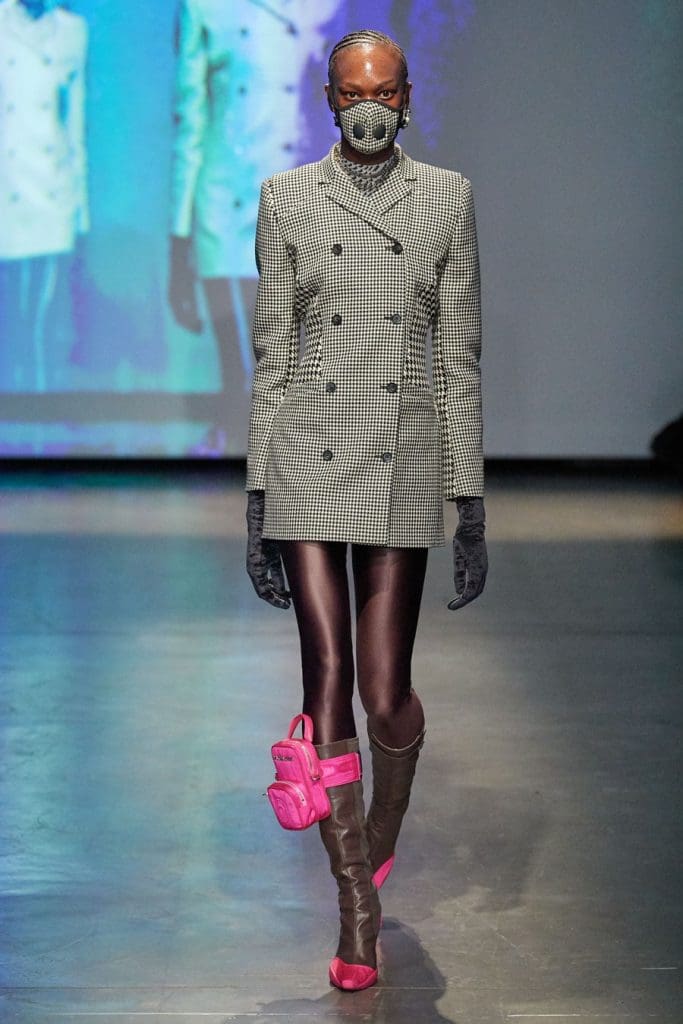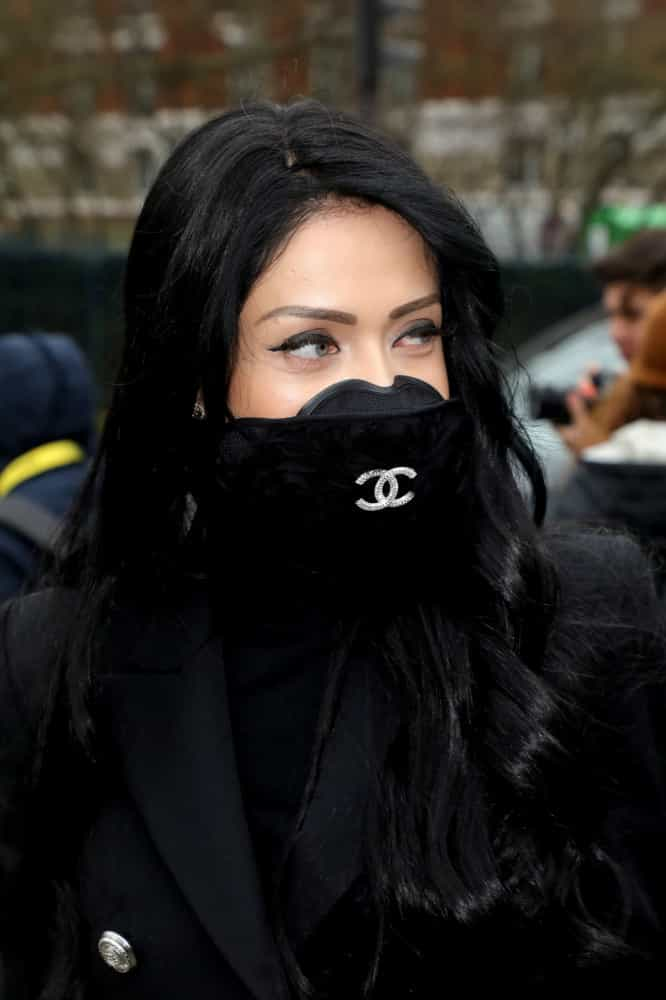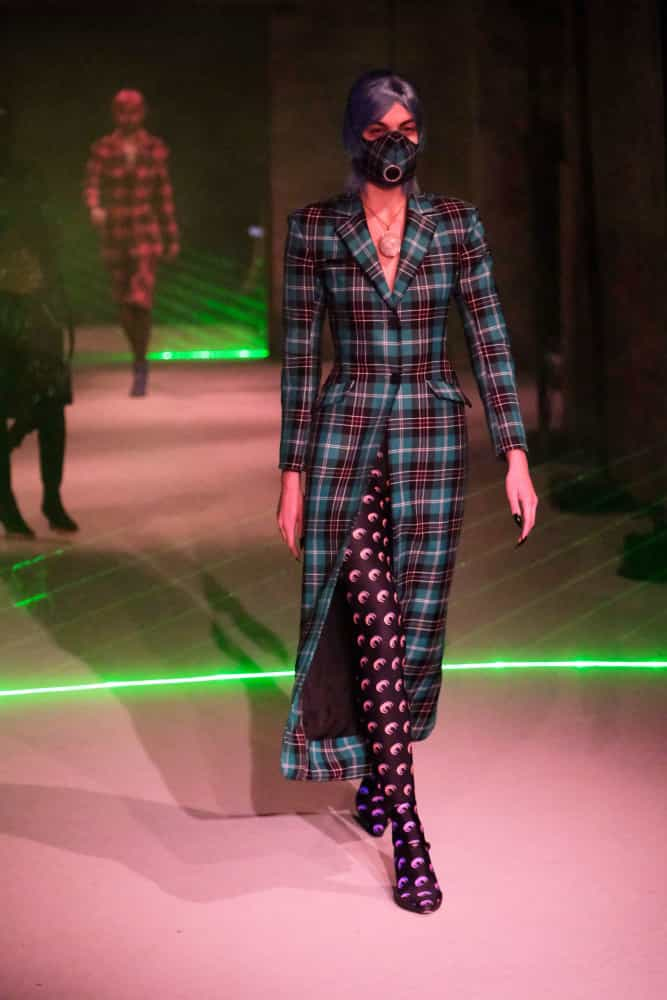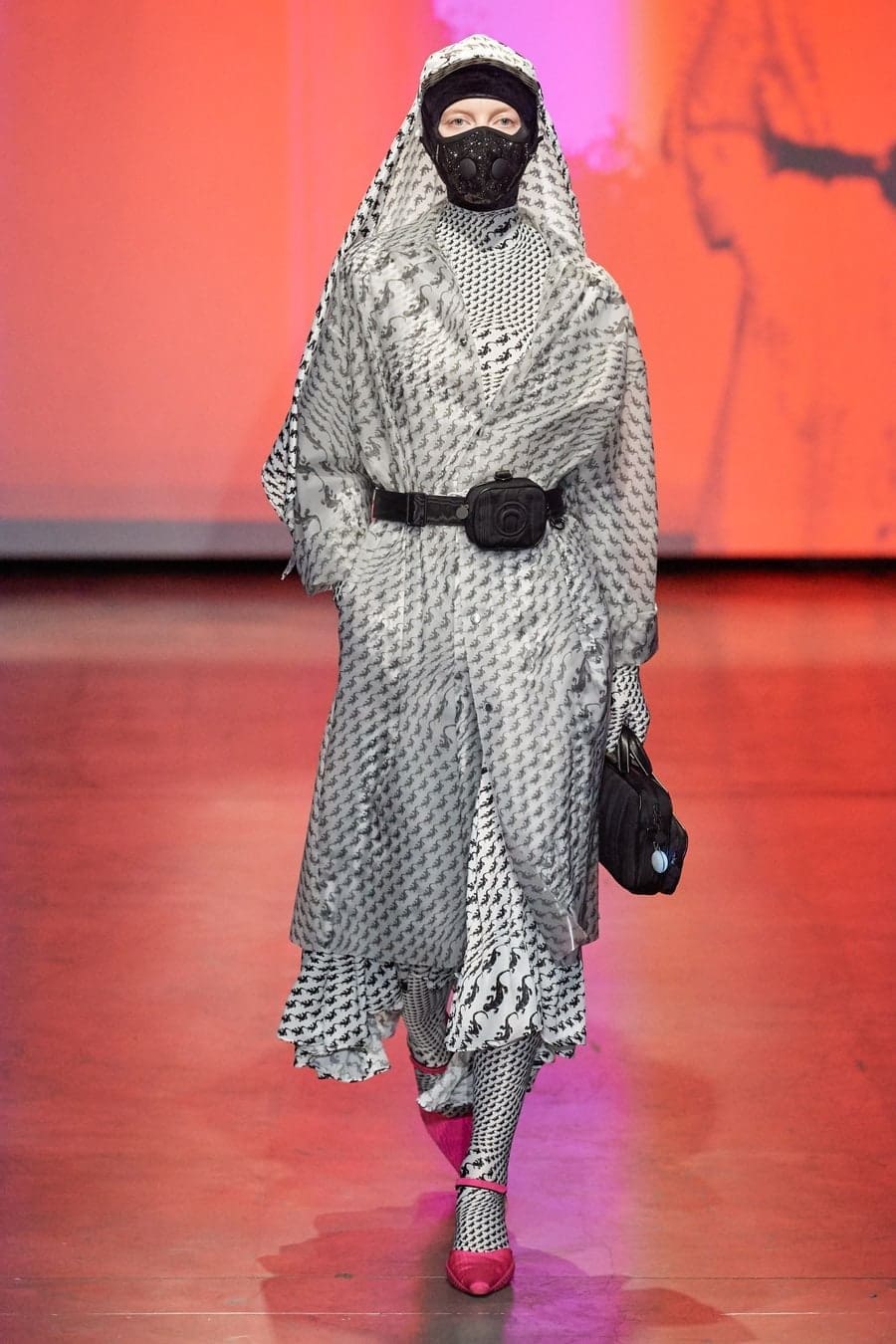Fashion Psychology : Something in Vogue
Despite the widespread panic and anxiety, economic carnage, and the threat to human life, it seems that the Coronavirus pandemic has also brought about one surprising gift: we’ve finally slowed down. And I believe that with this slowing down, we’ve gained levels of clarity, perspective, and presence that will forever change how we live, shop, and market.
The Psychology of Fashion is a platform that explores why we wear what we wear, and the relationships between personality, mood and aesthetic. The platform also examines fashion industry dynamics and issues such as sustainability and workplace wellbeing, through the lens of psychology.

We believe that personal style is not random. The clothes that feel best tap into our truest qualities, are a consequence of our different inner needs, and reflect our most deep-seated narratives about ourselves.
Through research, features, opinion, discussion and community, we aim to justify aesthetic aspirations and provide consumer direction through promoting self-knowledge and awareness about the connections between one’s own psychology and tastes in design.As face coverings become the new normal, they are having a profound psychological effect on society and the individual. Seemingly just functional, they are having other unexpected effects – creating distance, perhaps reinforcing fears, and becoming a way to make a statement, whether a fashion or political one.
To give a bit of contemporary context, decorative face coverings were a part of the Marine Serre Fall 2020 Ready-to-Wear runway, as well as streetwear and rave fashion before they were a staple in most of our wardrobes. Now mainstream, patterned cloth face masks have popped up for sale everywhere from Alice and Olivia to independent designers on Etsy. Fans can find face coverings that show off their favorite sports teams or pop culture characters. Revolve sells a number of stylish face masks, some of which stretch the definition of “protective.” Other designers have semi-jokingly released “trikinis” (bikinis with matching face masks) and face coverings with a hole for sipping through a straw.
This buoyant response to face masks-turned-fashion-accessory have caused critics to decry capitalizing on a public health necessity, but the important goal is to normalize masks and make people want to wear something that is a visual and physical reminder of the crisis we’re in. The growing attitude is that if we have to wear these face coverings for the long term, we might as well have some fun with them.

Face mask production is a natural pivot for many retailers whose businesses have suffered during the pandemic, especially as more governments are mandating wearing cloth face coverings in public. This has also presented an opportunity for companies to do good. And as a result, we’ve seen that many retailers have decided to donate face masks and a portion of their proceeds to medical professionals and communities in need.
The face mask itself is becoming a political statement. The decision to wear one or not wear one signals certain ideological affiliations and principles to the public. In a Guardian article, Dr. Simon Kolstoe said that there is limited evidence on the effectiveness of cloth masks, but that wearing a mask could be a statement of solidarity and concern for others. It has also been found that those with social anxiety are more receptive to the face masks, as are individuals who wish to have anonymity, like protesters. For others, not wearing a mask signals one’s personal rebellion against government orders that they believe are infringing upon their freedom; ultimately embroiling a battle between science and civil liberties.

Across the world people are having issues grappling with the new normal. While Prime Minister Boris Johnson’s administration is recommending the use of face masks, Johnson himself compared the face-covering veils of burkhas to “looking like a bank robber” back in 2018. China and other Asian countries have adapted more naturally, because face masks have been common there for decades; most notably since the SARS epidemic in 2002. This comparison highlights a period of adjustment for places like the US and the UK, where individuals are having a harder time agreeing on what the face masks mean in our everyday lives. It makes sense that there would be so many mixed views.
Before we see a uniform perception of facemasks, we may see the psychological impact on how we interact with others that the widespread wearing of face coverings is bound to have. According to Psychology Today, our brains take only about “13 thousandths of a second” to determine the attractiveness of another person’s face and that the eye and that mouth areas are the most important facial features for correctly interpreting emotions. Ergo, covering the lower half of the face is bound to increase non-verbal miscommunication. Beyond that, another study showed that hiding half of your face actually increases your appeal to others. The study’s authors, Javid Sadr and Lauren Krowicki, theorized that, when half of the face is concealed, we are forced to fill in the missing features, which we assume to be more attractive. Maybe we’ll experience this effect once we emerge from quarantine starved for human connection. Or the face coverings that are our symbolic shield against spreading infection among others could increase barriers and alienation.
Mask-wearing is also impacting our facial appearances in terms of cosmetics. In China, Alibaba reported that eyeshadow sales increased by 150 percent during the week of February 18 due to the popularity of “mask makeup looks” on social media. In the United States, eye makeup sales increased by five percent and lip care and lip color sales dropped by 15 percent year-over-year in the four weeks ending April 11, according to McKinsey. With masks obscuring such a large portion of the face, women may focus more on eye makeup, earrings, and hair.
But what’s most interesting psychologically speaking, whether a mask is Off-White or off-the-pharmacy stand, why is it that some people choose not to wear masks while others do? It probably comes down to how conscientious someone is. Conscientious people are bound to duty, rules, and erring on the side of caution. They recycle diligently, floss, and never file a tax return late. People that are lower on the conscientiousness spectrum (take our test below to find out where you sit!) like to feel free and unrestrained by what they “should” be doing. And, well, should you be? That’s a personal decision, and also a little bit up to your government.

The experts say until the threat of this pandemic has been neutralized, people should embrace the protection masks allow them to provide to those around them.
After all, it’s not necessarily about you — it’s about everyone you come in contact with.
It’s not at all uncommon to be an asymptomatic carrier of the new coronavirus — which means that even if you have no symptoms at all, you could potentially transmit the virus to someone who could then become gravely ill or even die.
A mask, alongside frequent handwashing and physical distancing measures, like staying at least 6 feet (2 meters) apart, reduces that risk.
But could this be a trend that continues even after COVID-19? And perhaps the more important question: Should it?
“As we start to navigate life beyond the stay-at-home orders, we likely will need to continue to use face masks if we want to prevent continued transmission,”
But she’s unsure of what the future may hold beyond that.
Functional — and fashionable
But it’s not just improving comfort that face mask designers are now focusing on. Many are also trying to create masks people actually want to wear — masks others might find as an aesthetically pleasing and fun way to accessorize.
If you think that sounds crazy, just remember: Sunglasses and hats once started out as items meant to simply protect the wearer from the sun.
They’ve now evolved into fashion accessories providing countless options to choose from.
“Many businesses, small and large, have taken the opportunity to make and sell cloth face covers. A wide variety of styles and designs are already available,” Bell said. “We’re already seeing a lot of people not only wearing cloth face coverings, but making a design or fashion statement with their choice of cover.”
Whether it’s the design you choose or the way you fasten your mask to your face (with a popular debate now ensuing over whether ear loops or clasps behind the head are better), you have an opportunity to make a statement with the mask you wear — and protect others in style.
Masks are here to stay. And they’re quickly becoming a way to express ourselves.
Fashion always finds a way. Human beings are undaunted in their search for ways to stand out, to communicate, to thrive in a treacherous environment. And so the face mask — once purely functional, once perceived as an exotic accessory — has evolved at breakneck speed into something more.
It’s more essential because the Centers for Disease Control and Prevention has recommended that Americans wear a mask when interacting with others. It’s more aesthetically pleasing. It’s also a more complicated cultural proposition. And, of course, the face mask is political because both the president and the vice president have refused to wear one on highly public occasions and because some protesters have insinuated that masks are un-American.
As the country moves toward reopening, masks are assuredly part of our future. And in some ways, their evolution is the perfect encapsulation of how much life has changed in a blink of an eye — and how challenging, both intellectually and emotionally, it will be for us to go forward.
However, you spin it, donning a face mask is bound to be both physically and psychologically uncomfortable. But we can either let the masks strip us of our individuality, or we can let them become a new form of self-expression. Or a chance to finally perfect winged eyeliner. But considering the inevitable collective mental shifts that the pandemic has brought on, we must look forward, try and stay nimble, and delve into what we can anticipate the central psychological and behavioral changes in our landscape to be.
Authored by –
Sukanya Kandarkar


